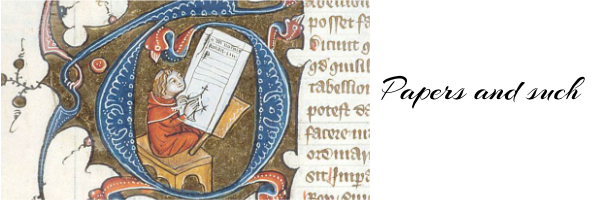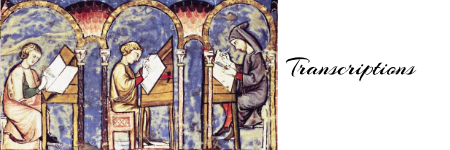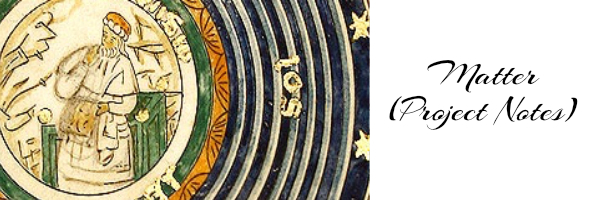Research Wunderkammer
I have embarked on a few different research projects in the last decade or so: the most current one is on early 14th-century theories of matter. While the most general concept of matter – more specifically, prime matter – seems relatively straightforward in an Aristotelian framework, the devil is in the details, and those are what I am trying to tackle. How many kinds of prime matter are there? Are the celestial bodies made of the same kind of matter as we are? What is matter like? What about its potency? Does it essentially have its potencies or are those accidental to it? These are just a few of the questions medieval thinkers addressed in various works. By looking at a considerable number of sources, we are also trying to figure out whether these questions – and their answers – showed any diversity along usual lines of compartmentalization (religious order, geographical location, university facutly, etc.).
My earlier projects mostly concerned issues in medieval theories of causation and divine concurrence. What do we mean precisely when we say that the fire is cracking in the fireplace because I lit it? Is this merely a way of everyday talking, or are there really things acting on each other? Would our answer be different if there were some higher agent (God) who is responsible for every being at every moment of their existence? In the last few decades’ emerging neo-Aristotelian metaphysics, some of these questions have received revived attention — and so should, I argue, medieval accounts of causation and divine concurrence, which are perhaps the most developed treatments of these issues in the history of philosophy.
Working at Indiana University, I also explored the thought of Richard Rufus, an early thirteenth-century Franciscan, who was the first one we know in the West commenting on Aristotle’s Metaphysics. For materials connected to Rufus, see the website of the Rufus Project.
Beside medieval philosophy, I am much interested in some contemporary issues in Metaphysics and Philosophy of Religion -- hence the Philosophy of Religion Workshop Series I so much enjoyed organizing back in 2015/16. Read the longer research statement, or the summary of a dissertation where it all began.You can find some drafts and other resources below.




